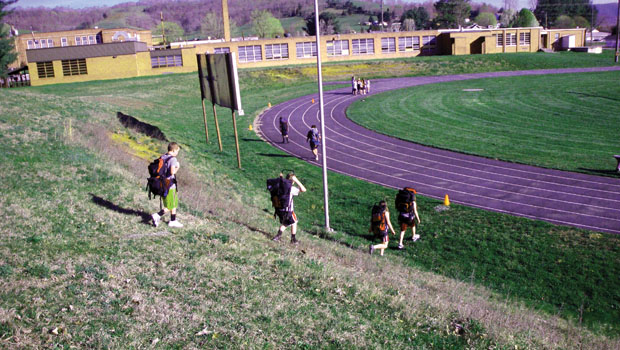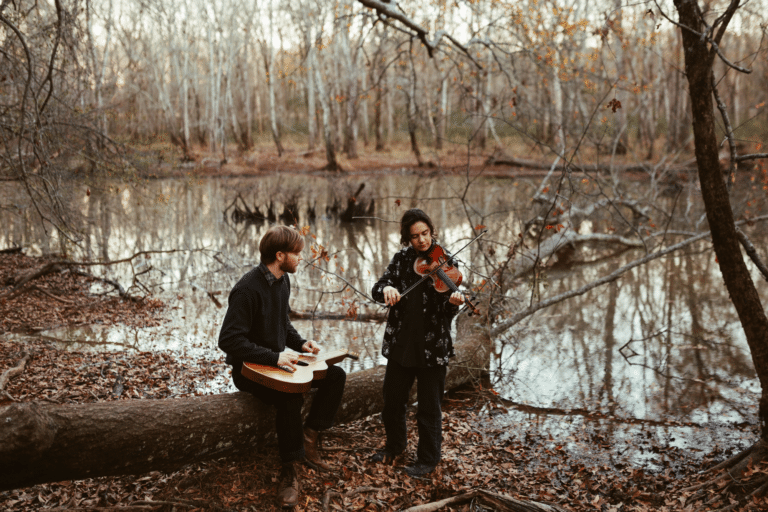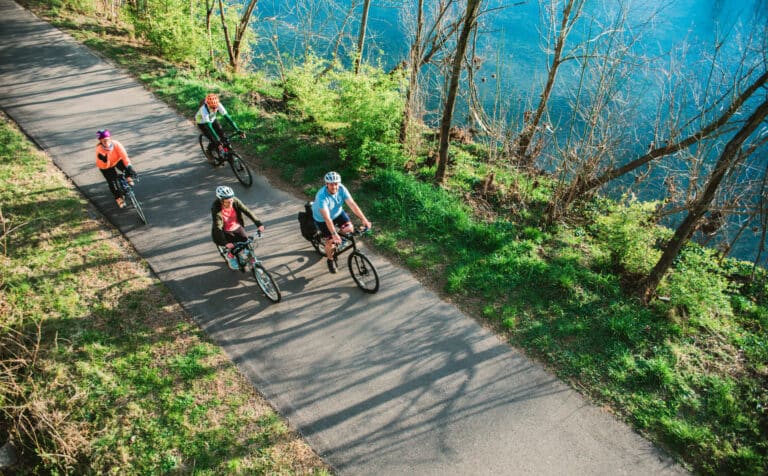Mike Miller’s students hike around the school campus in a simulated cross-country trek.
It sounds like a simple thing—put on a backpack and walk once around a track—but Mike Miller’s hiking challenge is an innovative approach to cross-curriculum education that keeps physical education relevant. Students in his P.E. class at Virginia’s Shawsville Middle School strapped on 25-pound backpacks and performed hiking time trials on two 400-meter courses in order to help simulate a hike across America.
Over the course of a week, 30 students between the ages of 11 and 14 took turns walking 400 meters around a track, then 400 meters up a steep hill while carrying weighted backpacks. The courses were designed to mimic the flat land of the Midwest and the mountainous terrain of the Appalachians and Rockies. Miller then plotted a route on a map from Virginia to San Francisco and used the time trial data to chart the course of the students on their simulated hike across the country.
Teachers of core curriculum subjects like math and science at the school are integrating the hiking project into their lesson plans. In social studies class, students learned about the history of each state they hiked through along the way. In science class, they used a caloric chart and planned a week’s worth of meals based on their speed of travel and calories burned. And in English class, the students wrote essays discussing the various elements of the hike.
While the cross-curriculum lessons were a valuable way for the kids to practice elements of core subjects, Miller is most excited about the project’s potential to introduce these kids to the outdoors.
“Most of these kids have never been hiking,” says Miller. “A lot of these kids won’t even make it through our regular physical education tests. They just quit. But those same kids did really well in this hiking test, and they seemed to really enjoy it. Outdoor recreation has some excitement factor for these kids.”
Miller plans to use this initial hiking project as a springboard for introducing more adventure-based sports into his P.E. curriculum, such as incorporating outdoor recreation into existing fitness stations, bringing orienteering projects onto campus, planning field trips, and working with local landowners and county parks to create small trail systems the kids could use.
“Several kids asked if we could keep doing the hiking challenge, and some are asking about where they can go hiking on their own,” Miller says. “I’m hoping this project will spark a brand new outdoor recreation program at our school. Anything I can do to get these kids hooked on outdoor activity, I’m willing to do it.”
Did you know? P.E. Makes You Smarter
A new Center for Disease Control report shows physical activity in schools has positive effects on grades and test scores.
The report analyzed studies over the last 25 years from all 50 states. While states and individual schools are dropping P.E. to concentrate on meeting testing standards, the report concludes schools should actually increase physical education to raise test scores.
The majority of studies showed school-based activity programs increased students’ grades, test scores, and academic behavior.








